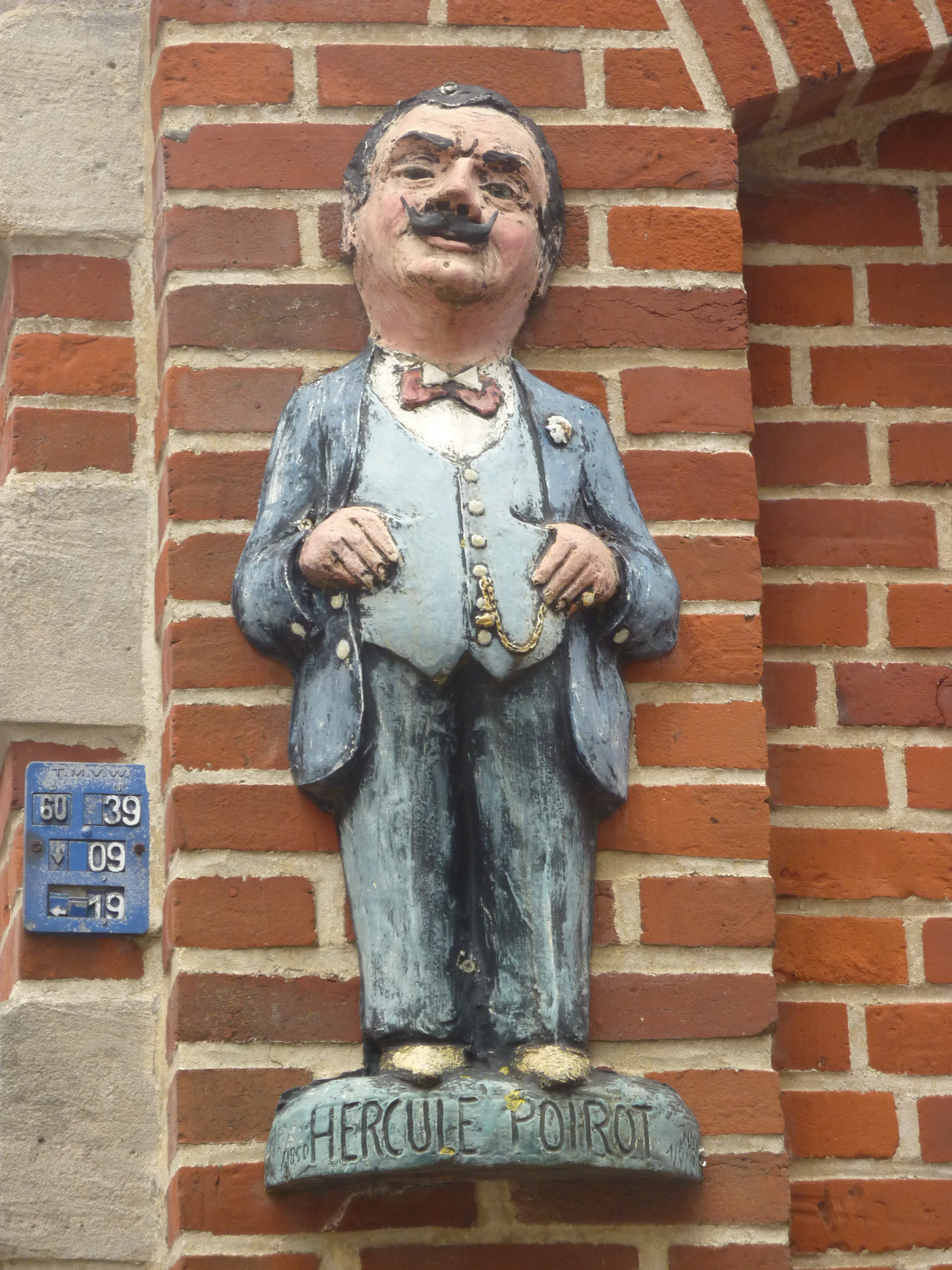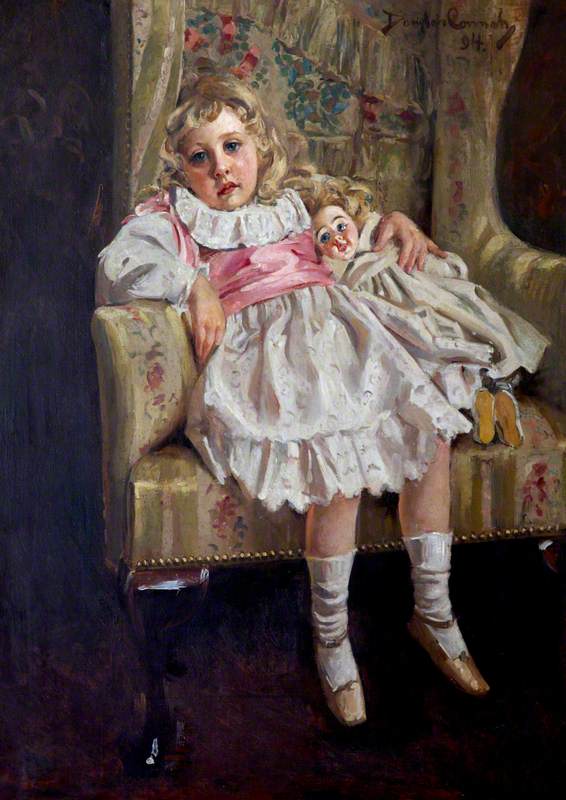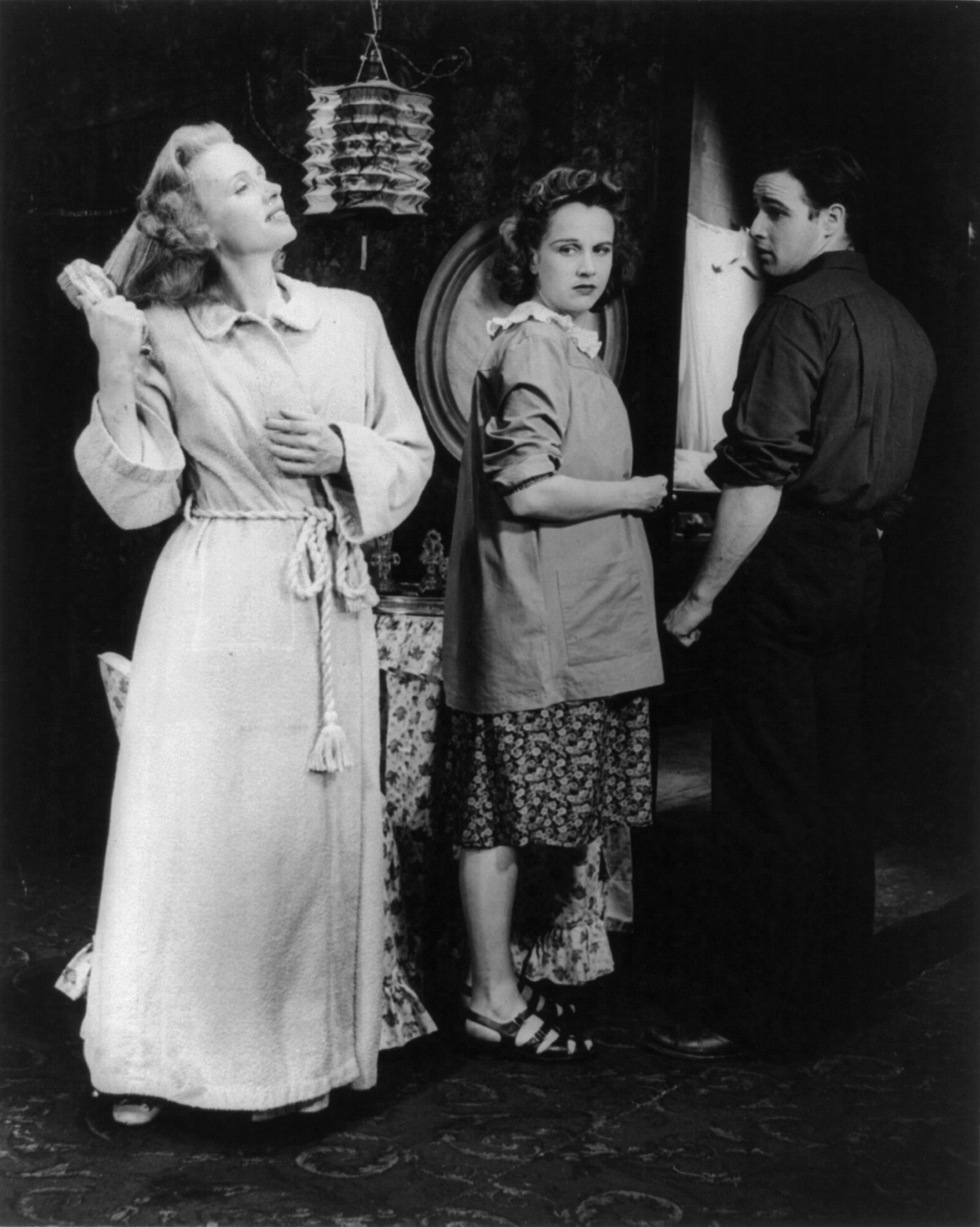|
The Moon And Sixpence
''The Moon and Sixpence'' is a novel by W. Somerset Maugham, first published on 15 April 1919. It is told in episodic form by a first-person narrator providing a series of glimpses into the mind and soul of the central character, Charles Strickland, a middle-aged English stockbroker, who abandons his wife and children abruptly to pursue his desire to become an artist. The story is, in part, based on the life of the painter Paul Gauguin. Plot summary The book is written largely from the point of view of the narrator, a young, aspiring writer and playwright in London. Certain chapters entirely comprise accounts of events by other characters, which the narrator recalls from memory, selectively editing or elaborating on certain aspects of dialogue, particularly Strickland's, because Strickland is said by the narrator to have a very poor ability to express himself in words. The narrator first develops an acquaintance with Strickland's wife at literary parties and later meets Strickl ... [...More Info...] [...Related Items...] OR: [Wikipedia] [Google] [Baidu] |
William Somerset Maugham
William Somerset Maugham ( ; 25 January 1874 – 16 December 1965) was an English writer, known for his plays, novels and short stories. Born in Paris, where he spent his first ten years, Maugham was schooled in England and went to a German university. He became a medical student in London and qualified as a physician in 1897. He never practised medicine, and became a full-time writer. His first novel, ''Liza of Lambeth'' (1897), a study of life in the slums, attracted attention, but it was as a playwright that he first achieved national celebrity. By 1908 he had four plays running at once in the West End theatre, West End of London. He wrote his 32nd and last play in 1933, after which he abandoned the theatre and concentrated on novels and short stories. Maugham's novels after ''Liza of Lambeth'' include ''Of Human Bondage'' (1915), ''The Moon and Sixpence'' (1919), ''The Painted Veil (novel), The Painted Veil'' (1925), ''Cakes and Ale'' (1930) and ''The Razor's Edge'' (1944). ... [...More Info...] [...Related Items...] OR: [Wikipedia] [Google] [Baidu] |
The Moon And Sixpence (film)
''The Moon and Sixpence'' is a 1942 film adaptation of W. Somerset Maugham's 1919 novel of the same name, which was in part based on the life of the painter Paul Gauguin. Dimitri Tiomkin was nominated for the Academy Award for Best Music, Scoring of a Dramatic or Comedy Picture. Two versions were filmed. In one, Devi Wani, a Javanese actress, played Ata; in the other, Ms. Verdugo played her, to accommodate audiences for whom marriage between a Polynesian and an Englishman was considered unacceptable. Plot Geoffrey Wolfe, a writer similar to Maugham, tells the story of Charles Strickland. A mediocre, seemingly unassuming London stockbroker, Strickland suddenly gives up his career, wife of 17 years, and children and moves to Paris. Mrs. Strickland asks Wolfe to bring him back. To Wolfe's surprise, Strickland has not run away with another woman (as he had been told), but because Strickland feels compelled to become a painter. He exhibits no remorse or shame about abandoning his fam ... [...More Info...] [...Related Items...] OR: [Wikipedia] [Google] [Baidu] |
Hercule Poirot
Hercule Poirot (, ) is a fictional Belgian detective created by British writer Agatha Christie. Poirot is one of Christie's most famous and long-running characters, appearing in 33 novels, two plays ('' Black Coffee'' and ''Alibi''), and more than 50 short stories published between 1920 and 1975. Poirot has been portrayed on radio, in film and on television by various actors, including Austin Trevor, John Moffatt, Albert Finney, Peter Ustinov, Ian Holm, Tony Randall, Alfred Molina, Orson Welles, David Suchet, Kenneth Branagh, and John Malkovich. Overview Influences Poirot's name was derived from two other fictional detectives of the time: Marie Belloc Lowndes' Hercule Popeau and Frank Howel Evans' Monsieur Poiret, a retired French police officer living in London. Evans' Jules Poiret "was small and rather heavyset, hardly more than five feet, but moved with his head held high. The most remarkable features of his head were the stiff military moustache. His apparel was ... [...More Info...] [...Related Items...] OR: [Wikipedia] [Google] [Baidu] |
Agatha Christie
Dame Agatha Mary Clarissa Christie, Lady Mallowan, (; 15 September 1890 – 12 January 1976) was an English writer known for her 66 detective novels and 14 short story collections, particularly those revolving around fictional detectives Hercule Poirot and Miss Marple. She also wrote the world's longest-running play, the murder mystery ''The Mousetrap'', which has been performed in the West End since 1952. A writer during the "Golden Age of Detective Fiction", Christie has been called the "Queen of Crime". She also wrote six novels under the pseudonym Mary Westmacott. In 1971, she was made a Dame (DBE) by Queen Elizabeth II for her contributions to literature. ''Guinness World Records'' lists Christie as the best-selling fiction writer of all time, her novels having sold more than two billion copies. Christie was born into a wealthy upper middle class family in Torquay, Devon, and was largely home-schooled. She was initially an unsuccessful writer with six co ... [...More Info...] [...Related Items...] OR: [Wikipedia] [Google] [Baidu] |
Al Bowlly
Albert Allick Bowlly (7 January 1898 – 17 April 1941) was a Mozambican-born South African–British vocalist and jazz guitarist, who was popular during the 1930s in Britain. He recorded more than 1,000 songs. His most popular songs include "Midnight, the Stars and You", " Goodnight, Sweetheart", " Close Your Eyes", "The Very Thought of You", "Guilty", " Heartaches" and "Love Is the Sweetest Thing". He also recorded the only English version of "Dark Eyes" by Adalgiso Ferraris, as "Black Eyes", with the words of Albert Mellor. Early life Al Bowlly was a Mozambican-born South African–British vocalist and jazz guitarist. He was born in 1898 in Lourenço Marques (today Maputo) in the Portuguese colony of Mozambique. His father, Alick Pauli was Greek by nationality. By religion he was Greek Orthodox. While Al's mother, born Miriam Ayoub-NeeJame, was Lebanese and Catholic by religion. They met en route to Australia and moved to South Africa. Bowlly was brought up in Johanne ... [...More Info...] [...Related Items...] OR: [Wikipedia] [Google] [Baidu] |
Ray Noble
Raymond Stanley Noble (17 December 1903 – 2 April 1978) was an English jazz and big band musician, who was a bandleader, composer and arranger, as well as a radio host, television and film comedian and actor; he also performed in the United States. Noble wrote both lyrics and music for many popular songs during the British dance band era, known as the "Golden Age of British music", notably for his longtime friend and associate Al Bowlly, including "Love Is the Sweetest Thing", "Cherokee", "The Touch of Your Lips", "I Hadn't Anyone Till You", and his signature tune, "The Very Thought of You". Noble played a radio comedian opposite American ventriloquist Edgar Bergen's stage act of Mortimer Snerd and Charlie McCarthy, and American comedy duo Burns and Allen, later transferring these roles from radio to TV and popular films. Early life and career Noble was born at 1 Montpelier Terrace in the Montpelier area of Brighton, England. A blue plaque on the house commemorates him. He ... [...More Info...] [...Related Items...] OR: [Wikipedia] [Google] [Baidu] |
The Moon And Sixpence In Glossop - Geograph
''The'' () is a grammatical article in English, denoting persons or things that are already or about to be mentioned, under discussion, implied or otherwise presumed familiar to listeners, readers, or speakers. It is the definite article in English. ''The'' is the most frequently used word in the English language; studies and analyses of texts have found it to account for seven percent of all printed English-language words. It is derived from gendered articles in Old English which combined in Middle English and now has a single form used with nouns of any gender. The word can be used with both singular and plural nouns, and with a noun that starts with any letter. This is different from many other languages, which have different forms of the definite article for different genders or numbers. Pronunciation In most dialects, "the" is pronounced as (with the voiced dental fricative followed by a schwa) when followed by a consonant sound, and as (homophone of the archai ... [...More Info...] [...Related Items...] OR: [Wikipedia] [Google] [Baidu] |
Jessica Tandy
Jessie Alice Tandy (7 June 1909 – 11 September 1994) was a British-American actress. Tandy appeared in over 100 stage productions and had more than 60 roles in film and TV, receiving an Academy Award, four Tony Awards, a BAFTA, a Golden Globe Award, and a Primetime Emmy Award. She acted as Blanche DuBois in the original Broadway production of ''A Streetcar Named Desire'' in 1948. Her films included Alfred Hitchcock's '' The Birds'' and ''The Gin Game''. At 80, she became the oldest actress to receive the Academy Award for Best Actress for her role in ''Driving Miss Daisy''. Early life The youngest of three siblings, Tandy was born in Geldeston Road in Hackney, London to Harry Tandy and his wife, Jessie Helen Horspool. Her mother was from a large fenland family in Wisbech, Cambridgeshire, and the head of a school for mentally handicapped children, and her father was a travelling salesman for a rope manufacturer. She was educated at Dame Alice Owen's School in Islington. ... [...More Info...] [...Related Items...] OR: [Wikipedia] [Google] [Baidu] |
Hume Cronyn
Hume Blake Cronyn Jr. OC (July 18, 1911 – June 15, 2003) was a Canadian-American actor and writer. Early life Cronyn, one of five children, was born in London, Ontario, Canada. His father, Hume Blake Cronyn, Sr., was a businessman and a Member of Parliament for London (after whom the Hume Cronyn Memorial Observatory at Western University, then known as The University of Western Ontario and asteroid (12050) ''Humecronyn'' are named). His mother, Frances Amelia (née Labatt), was an heiress of the brewing company of the same name; as the daughter of John Labatt and the granddaughter of John Kinder Labatt. Cronyn's paternal great-grandfather, Right Reverend Benjamin Cronyn, an Anglican cleric of the Anglo-Irish Protestant Ascendancy, served as the first bishop of the Anglican diocese of Huron and founded Huron College, from which grew the University of Western Ontario. His great-uncle, Benjamin, Jr., was both a prominent citizen and early mayor of London, Ontario, but w ... [...More Info...] [...Related Items...] OR: [Wikipedia] [Google] [Baidu] |
Laurence Olivier
Laurence Kerr Olivier, Baron Olivier (; 22 May 1907 – 11 July 1989) was an English actor and director who, along with his contemporaries Ralph Richardson and John Gielgud, was one of a trio of male actors who dominated the Theatre of the United Kingdom, British stage of the mid-20th century. He also worked in films throughout his career, playing more than fifty cinema roles. Late in his career, he had considerable success in television roles. His family had no theatrical connections, but Olivier's father, a clergyman, decided that his son should become an actor. After attending a drama school in London, Olivier learned his craft in a succession of acting jobs during the late 1920s. In 1930 he had his first important West End theatre, West End success in Noël Coward's ''Private Lives'', and he appeared in his first film. In 1935 he played in a celebrated production of ''Romeo and Juliet'' alongside Gielgud and Peggy Ashcroft, and by the end of the decade he was an establish ... [...More Info...] [...Related Items...] OR: [Wikipedia] [Google] [Baidu] |
The Moon And Sixpence (TV Movie)
''The'' () is a grammatical article in English, denoting persons or things already mentioned, under discussion, implied or otherwise presumed familiar to listeners, readers, or speakers. It is the definite article in English. ''The'' is the most frequently used word in the English language; studies and analyses of texts have found it to account for seven percent of all printed English-language words. It is derived from gendered articles in Old English which combined in Middle English and now has a single form used with pronouns of any gender. The word can be used with both singular and plural nouns, and with a noun that starts with any letter. This is different from many other languages, which have different forms of the definite article for different genders or numbers. Pronunciation In most dialects, "the" is pronounced as (with the voiced dental fricative followed by a schwa) when followed by a consonant sound, and as (homophone of pronoun ''thee'') when followed by a v ... [...More Info...] [...Related Items...] OR: [Wikipedia] [Google] [Baidu] |
Sadlers Wells
Sadler's Wells Theatre is a performing arts venue in Clerkenwell, London, England located on Rosebery Avenue next to New River Head. The present-day theatre is the sixth on the site since 1683. It consists of two performance spaces: a 1,500-seat main auditorium and the Lilian Baylis Studio, with extensive rehearsal rooms and technical facilities also housed within the site. Sadler's Wells is renowned as one of the world's leading dance venues. As well as a stage for visiting companies, the theatre is also a producing house, with a number of associated artists and companies that produce original works for the theatre. Sadler's Wells is also responsible for the management of the Peacock Theatre in the West End, during times not used by the London School of Economics. History First theatre and pleasure gardens Richard Sadler opened a "Musick House" in 1683, the second public theatre newly opened in London after the Restoration, the first being the Theatre Royal, Drury Lane. The f ... [...More Info...] [...Related Items...] OR: [Wikipedia] [Google] [Baidu] |






.png)

_1.jpg)

_-_Copy.jpg)